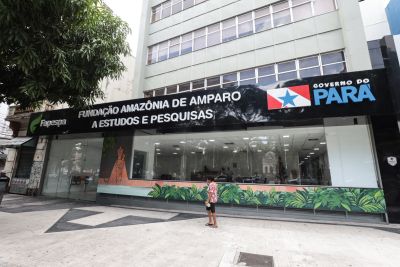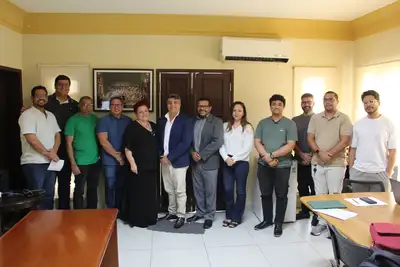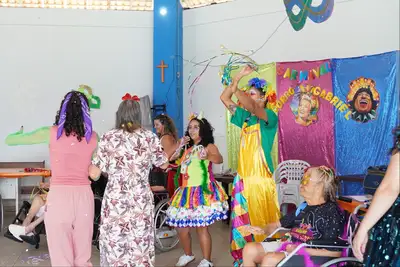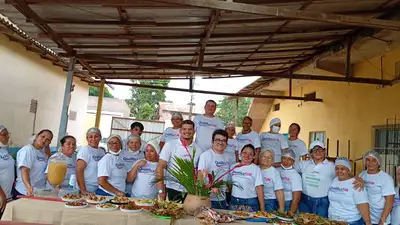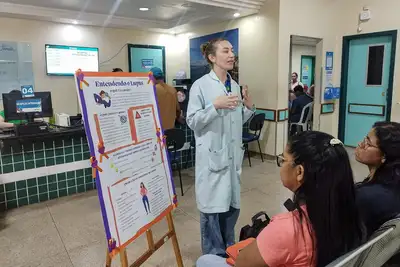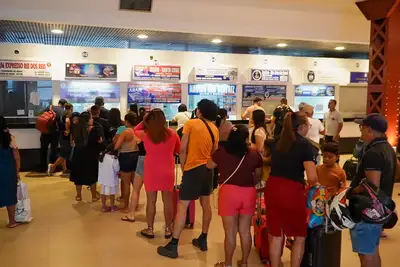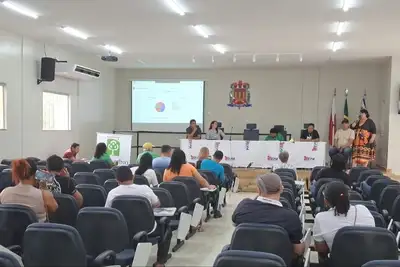State University of Pará (Uepa) promotes awareness about mental health
The Center for Biological and Health Sciences of the university promotes services and reinforces the importance of preventive care against mental illnesses
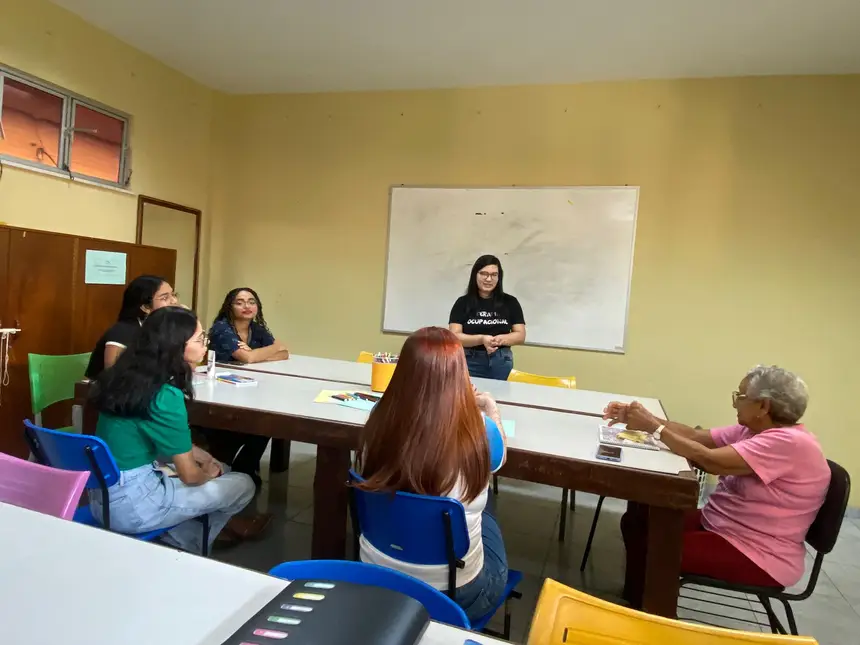
Data from the World Health Organization (WHO) indicate that approximately 20 million Brazilians have some type of psychological disorder, a scenario that reveals an alarming number of cases related to mental disturbances, highlighting the urgency of raising awareness about this issue in society. In the month dedicated to raising awareness about September Yellow, the State University of Pará (Uepa), through the Center for Biological and Health Sciences, reinforces the importance of preventive care for mental health.
Uepa professor and psychiatrist, André Rodrigues, states that it is essential to disseminate information about mental health to encourage the search for professional support, as well as to reduce the stigma surrounding this condition and promote the understanding that mental illnesses exist and require treatment.
Psychologist Caetano Diniz, who has been working at the Uepa School Health Center (CSEM/Uepa) for 17 years, informs that, at the unit, as well as worldwide, the highest demand comes from patients diagnosed with anxiety or depression. He warns about the importance of nurturing healthy habits - such as engaging in physical activities, eating properly, and having hobbies to relieve stress, in addition to relationships that assist in times of crisis: "It is preventive to have a social support network, because isolation will always hinder facing these daily challenges," he stated.
These mental conditions have complex causes, which can develop due to genetics or trauma, and affect the quality of life of millions of people. Therefore, it is important to be attentive to behavioral, emotional, and cognitive signs to seek a professional and start treatment.
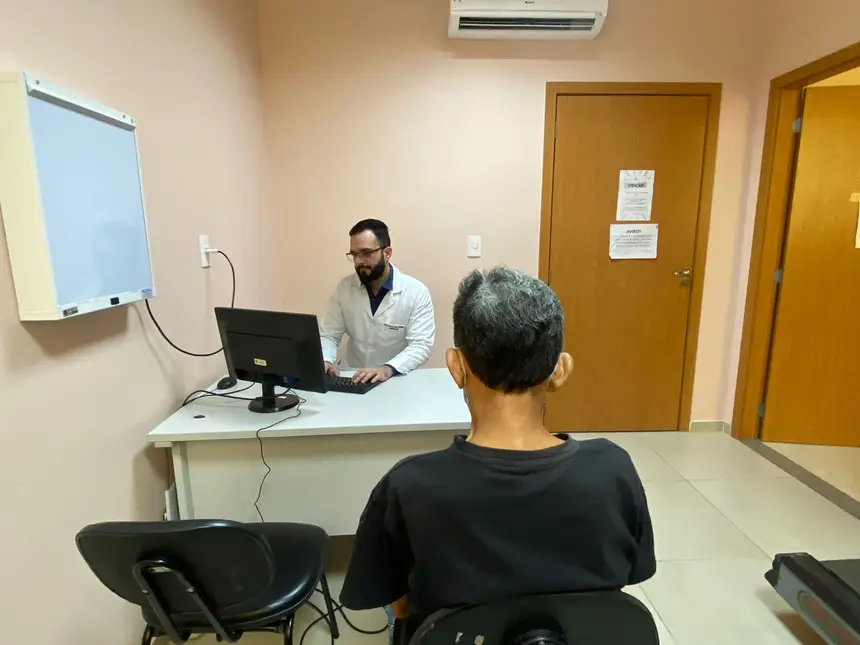
According to André Rodrigues, the warning signs are varied, with the most common being insomnia, feelings of anxiety, and recurring sadness. He states that the ideal is to seek help as soon as one notices any impairment in functionality and in the relationship with oneself and with others. "In addition, there are several challenges during the therapeutic process, such as stigma of the specialty, acceptance of the diagnosis, and intolerance to the side effects of medications," he explained.
In Brazil, the September Yellow campaign was established by the Brazilian Psychiatric Association (ABP) in 2013, in partnership with the Federal Council of Medicine (CFM), motivated by the increase in the number of suicides occurring in the country. In addition to the campaign, September 10 is officially World Suicide Prevention Day.
Occupational therapy as a complementary treatment
In addition to traditional approaches, occupational therapy can also assist in the treatment of psychosomatic disorders through therapeutic activities structured to help people with mental disorders develop skills, regain functions, and improve their quality of life.
Lucivaldo Araújo, a professor in the occupational therapy course at CCBS, explained that the main forms of action include the development of social skills through group activities, strengthening self-esteem through tasks that provide a sense of accomplishment, establishing structured routines that bring stability and predictability, developing coping strategies to deal with symptoms, and psychosocial rehabilitation to facilitate social and professional reintegration.
Aiming to promote self-care, the campus offers occupational therapy groups focusing on mental health. The meetings are supervised by Professor Rita Gaspar. She teaches the mental health course, and they are held in the Motor Skills Laboratory of the Annex/Block D of the CCBS campus.
The group "Meetings that Care" meets on Tuesdays and targets adults and seniors from the community; the other group called "Reframing Grief: Between Memories and Petals of Memory" takes place on Thursdays and targets grieving individuals. To participate, simply contact occupational therapy students Sophia Ribeiro at (91) 98231-0105 or Maria Victória Oliveira at (91) 98082-5283.
Dienne Porfirio, a member of the support group for grieving individuals, explains that the support provided was helpful, as she had no one to talk to about her grief. "As I came to the group, I started expressing myself, and that relieved me and made me feel better; today I am improving," she said.
Support provided by the institution
In order to promote a more welcoming academic environment, Uepa offers several support programs for students and staff, such as the Psychological and Pedagogical Support Service for Students (SAPPE/CCBS), the Support Center for Staff (NAS), and the Student Assistance Center (NAE).
From the concerns of some students, Patrícia Neder, a psychologist and professor at Uepa, in partnership with other faculty members, formed a care group, which later grew larger and is now SAPPE/CCBS. To request assistance, it is necessary to send an email to sappe.ccbs@uepa.br informing the name, enrollment number, course, and indicating a time for the follow-up between 9 am and 2 pm, Monday to Friday.
The professor cites factors contributing to the mental overload of undergraduate students, especially in the health field, such as extensive working hours and the demands of the academic environment. "This dedication is necessary. When we realize that there is this acceptance that the choice also involves losses on one side and gains on the other, it starts to make sense for our students," she stated.
Khaelson Moura, a medical student and SAPPE participant, reports that, in addition to academic issues, the assistance helped him deal with personal situations, "the improvement was global in different aspects, such as concentration, interpersonal relationships with other colleagues, and the decrease in the feeling of constant comparison with the performance of other colleagues," he reported.
The student explains that the flexibility of appointment times and the availability of the service within the institution, where students spend most of the day, facilitates ongoing support. "I had already tried to do psychotherapy at other private institutions as well, but I couldn't maintain continuity in those other services because my course is full-time and they didn't provide that flexibility," he said.
In addition to these, several projects and sectors promote actions for the themes addressed in the month dedicated to September Yellow throughout this period.
Digital Health
The Uepa/CCBS Digital Health project will develop two webinars addressing the prevention and treatment of psychological issues. The first will be on the 24th, with Uepa professor and psychiatrist André Rodrigues, at 8 am. The second lecture will be given by psychologists Jennifer Andrade and Camila Marchiotto, and will take place on the 29th, at 11 am. The webinars will be available at the link.
Sappe
Aiming to raise awareness about mental disorders, Sappe prepared a podcast featuring speakers Patrícia Neder, Danielle Seabra, and Ana Paula Souza, staff members of Sappe. The program will be broadcast live and can be accessed on September 26, at 8:30 am, at the link.
Center for School Health of Marco
To access the services of the Center for School Health of Marco (CSEM), at Campus II, it is necessary to schedule an appointment at the center, bringing an ID, proof of residence, and SUS card. If necessary, a referral can be made to the specialty sector of Uepa, located on the second floor of the Metropolitan Polyclinic, which offers consultations with a psychiatrist through regulation. Campus II/CCBS is located at Travessa Perebebuí, 2,623, Marco neighborhood, in Belém.
Ueafto
The Physiotherapy and Occupational Therapy Unit (Ueafto), at Campus II/CCBS, also offers psychological assistance for patients in rehabilitation at the unit who arrive through referral from the Unified Health Service (SUS).
Ampics
At Campus III of Uepa, the Ambulatory of Integrative and Complementary Health Practices offers free services, open to the public, through therapies such as auriculotherapy and lectures focusing on themes such as self-care and emotional intelligence. The ambulatory operates on Mondays (9 am to 12 pm) and Thursdays (2:30 pm to 5:30 pm). Campus III is located at Av. João Paulo II, 817. To schedule auriculotherapy, simply fill out the form available at the link.
Campus IV
The Multiprofessional Ambulatory Health Service is an extension project that serves the academic community and conducts nursing consultations with some initial services such as vital signs measurement, among others, and, if necessary, provides guidance to locations where there are psychology professionals. Campus IV/Magalhães Barata Nursing School is located at Av. José Bonifácio, 1,189, Guamá neighborhood.
Text by Vitória Balieiro, intern, under the supervision of Diane Maués / CCBS / Uepa


